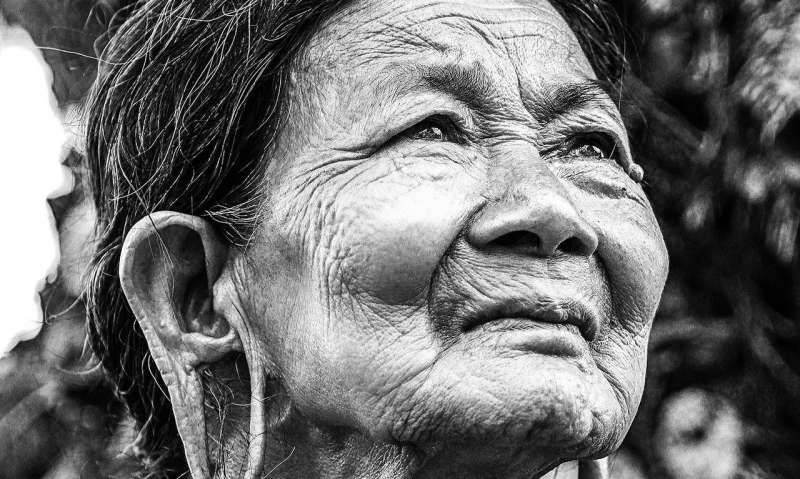January 9, 2018 report
Study suggests female advantage in life expectancy related to fundamental biological roots

A small team of researchers from Denmark and Germany has found evidence that suggests a biological reason for why women live longer than men. In their paper published in Proceedings of the National Academy of Sciences, the group outlines their study which involved analyzing survival data from several periods in history when groups of people were subjected to extreme duress.
Most everyone knows that women, on average, live longer than men. But nobody knows why. Some have suggested it is because men behave more recklessly. Others have suggested it might have to do with not having a spare X chromosome, while others yet, have suggested it might have something to do with testosterone levels. In this new effort, the researchers sought to learn more about differences in life expectancy by looking at survival rates for people undergoing extreme duress.
The researchers focused on a period of slave trading in Trinidad, a time period during which slaves freed in America were attempting to survive in Libera, a measles epidemic in Iceland and famines in Ukraine, Sweden and Ireland. In all such cases, except Trinidad, the researchers report, women lived longer than men. Trinidad was an exception, they note, likely because slave traders placed more value on them and thus put greater effort into keeping them alive. They note also that differences in life expectancy were mostly due to infant mortality rates.
Particularly notable was the famine data—in the Irish potato famine, for example, which occurred roughly over the period 1845 to 1849, men had a typical lifespan of just 18.17 years, while for women it was 22.4. But prior to the famine, both groups had a life expectancy of approximately 38 years. Data from other famines was roughly similar, which, the researchers claim, suggests that there must be a biological root for the differences in life expectancy. It is doubtful, they note, that behavioral differences in infants could have made a difference in mortality rates, leaving a biological source as the only reasonable possibility.
The team was not able to pinpoint what sort of biological advantage women might have over men, of course, but note that estrogen is known to be anti-inflammatory and that testosterone may actually cause problems for the immune system.
More information: Virginia Zarulli et al. Women live longer than men even during severe famines and epidemics, Proceedings of the National Academy of Sciences (2018). DOI: 10.1073/pnas.1701535115
Abstract
Women in almost all modern populations live longer than men. Research to date provides evidence for both biological and social factors influencing this gender gap. Conditions when both men and women experience extremely high levels of mortality risk are unexplored sources of information. We investigate the survival of both sexes in seven populations under extreme conditions from famines, epidemics, and slavery. Women survived better than men: In all populations, they had lower mortality across almost all ages, and, with the exception of one slave population, they lived longer on average than men. Gender differences in infant mortality contributed the most to the gender gap in life expectancy, indicating that newborn girls were able to survive extreme mortality hazards better than newborn boys. Our results confirm the ubiquity of a female survival advantage even when mortality is extraordinarily high. The hypothesis that the survival advantage of women has fundamental biological underpinnings is supported by the fact that under very harsh conditions females survive better than males even at infant ages when behavioral and social differences may be minimal or favor males. Our findings also indicate that the female advantage differs across environments and is modulated by social factors.
Journal information: Proceedings of the National Academy of Sciences
© 2018 Phys.org



















